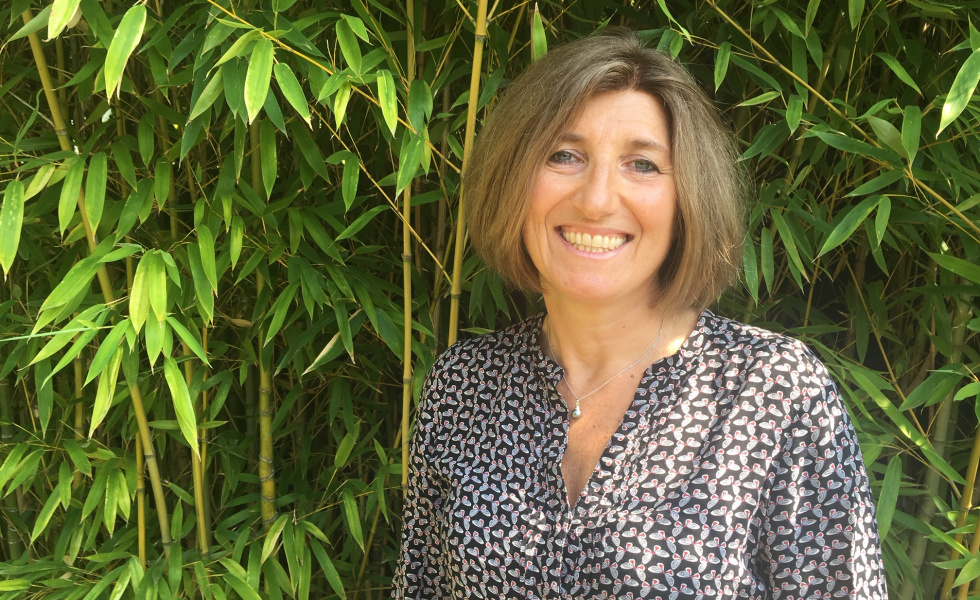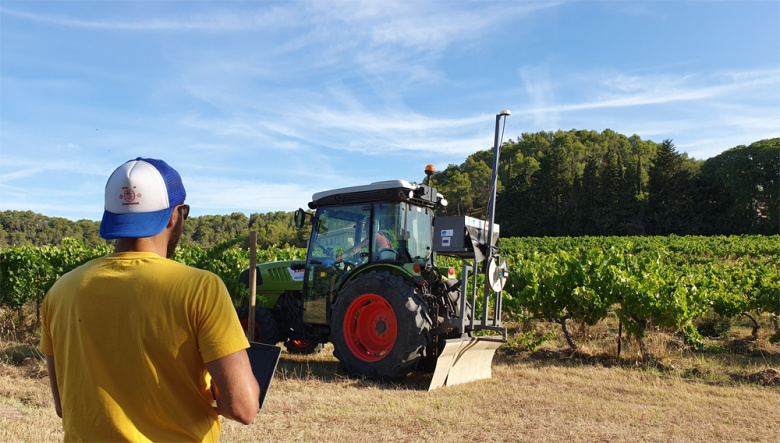Supported by Montpellier Méditerranée Métropole, #DigitAg is the only one of France’s ten Convergence Institutes focusing on connected agriculture, a global issue.

Taking a unique approach
As required in Convergence Institutes calls-for-projects, #DigitAg involves researchers working together in different disciplines, such as: digital (engineering sciences, mathematics, and computer science); agronomy and biology; and human, social, and economic sciences. Many different entities are also involved, including some 29 research laboratories from 4 research organizations (Inrae, Cirad, and Inria), along with 3 higher education establishments (University of Montpellier, Institut Agro | Montpellier SupAgro, AgroParisTech) and Technical Agricultural Institutes in the Acta network. #DigitAg comprises a total of 16 founding members, including 8 companies, such as IDATE, Smag, and ITK.The Convergence Institute #DigitAg faces a major challenge, as the use of information technologies in agriculture is still in its early stages.
#DigitAg has been extremely busy from the moment it was launched. Notably, it identified two areas in which AgTech startups can play an important role: producing better, and integrating farmers in society through digital technologies. #DigitAg has already approved and funded nearly 60 doctoral theses. It has also provided funding for 150 Master’s students. These works help maintain a healthy pace for publications. At the same time, in cooperation with the AgroTIC Digital Agriculture Chair, #DigitAg set up an observatory to study uses for digital agriculture. The high quality of its analyses further reinforces its international outreach. Lastly, #DigitAg members lead by example, notably via their PhD students, by creating games designed to lead farmers towards digital technologies: C-Real Game (focusing on coverage for agricultural risks), Apex Vigne (application for estimating water stress in vineyards), and Pix-Fruit (tool for the mango sector in Africa).“We are trying to understand how digital technologies fit in and develop in the agricultural world, and we are building a scientific foundation that will enable consolidation in the AgTech sector,” adds Véronique Bellon-Maurel.
While the institute operates on both national and international levels, its works will also directly benefit the local region. In June 2020, #DigitAg launched Occitanum, a living lab whose mission is to work with farmers to focus on the ecological transition in the Occitanie region.
This therefore involves agroecology. That is also why Montpellier Méditerranée Métropole has supported #DigitAg since the very beginning, and even participates in its Strategic Board. The goal is to help bring about sustainable agriculture that respects the environment and meets societal expectations. After all, doesn’t #DigitAg cultivate the field of knowledge to plant the seeds and grow the agriculture of tomorrow? Definitely an effort that deserves a bit of a boost.“Occitanum will enable AgTech stakeholders to test new digital tools through collaboration between farmers and researchers,” points out Véronique Bellon-Maurel.
More room for women in digital professions
It is widely agreed that there are not enough women in digital professions. With that in mind, #DigitAg joined forces with the Montpellier Data Science Institute and University of Montpellier to launch an operation entitled VISÉE 77. This action offers an opportunity for 77 middle-school kids to benefit from observation internships in research laboratories so that they can discover and learn about digital professions. VISÉE 77 is already in place for the current school year.There are 0 commentaires on this page
Leave a comment



